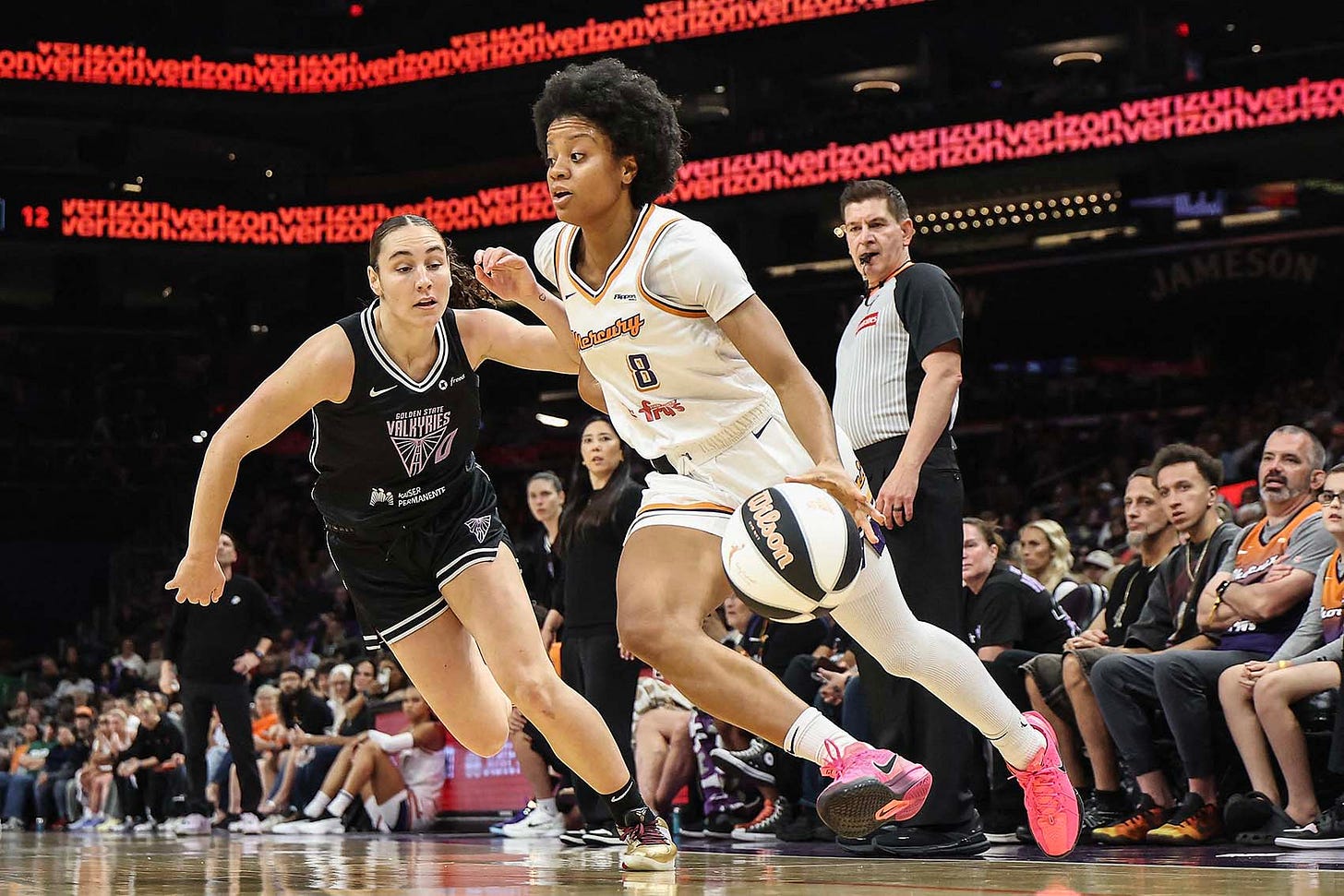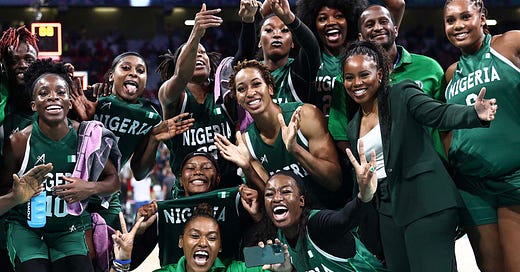You should be watching African women play basketball
They are knocking on the door of our collective attention and proving that they are a good investment.
Nanjala Nyabola
Football dominates team-sport attention in Africa but the continent has also given the world some of the best basketball players of all time. Think Hakeem Olajuwon and Dikembe Mutombo. But African women hoop too. And they are having an international moment.
A sign of the game’s growth was Team Nigeria’s incredible showing at the Paris Olympics. The only African team that played, Nigeria made it to the quarter finals and held the United States, the eventual winners, to their second-lowest winning margin all tournament.
The US is only now fully tuning into the social and economic value of women’s sports. For the better part of nearly three decades, its women’s basketball league, WNBA, was treated like a vestigial organ of the men’s NBA. As WNBA teams start to get more respect, an incentive to up their game, they are taking notice of African players – developed in the robust Afrobasket circuits and strong leagues in Europe and Asia. This year, 11 of 13 teams in the WNBA will feature a player who was either born in Africa or whose parents were.

With stars like Nneka Ogwumike, Arike Ogunbowale, and Satou Sabally, first generation players – children of migrant African parents – are not a new feature of the WNBA. What is more notable this year is the increase in women who play for African countries like Monique Akoa Makani (Cameroon) and Murjanatu Musa (Nigeria) playing for the Phoenix Mercury, Kariata Diaby (Côte d’Ivoire) for the Connecticut Sun, and Sika Koné (Mali) playing for the Washington Mystics. Nigeria national team coach Rena Wakama is currently an assistant coach with the Chicago Sky.
Akoa Makani joined the WNBA as an undrafted rookie but has established herself as the person you want to pass the ball to in the final minutes of a close game. Scoring several clutch points against stronger teams, she has contributed to the Mercury’s much improved standing even in the extended absence of many of the team’s stars through injury.
You should be watching African women play basketball. The Afrobasket summer games restart in August in Namibia and Angola and will be livestreamed for free on the Fiba website. The WNBA league pass, which gives access to all games, costs $35 a year and is available worldwide.






